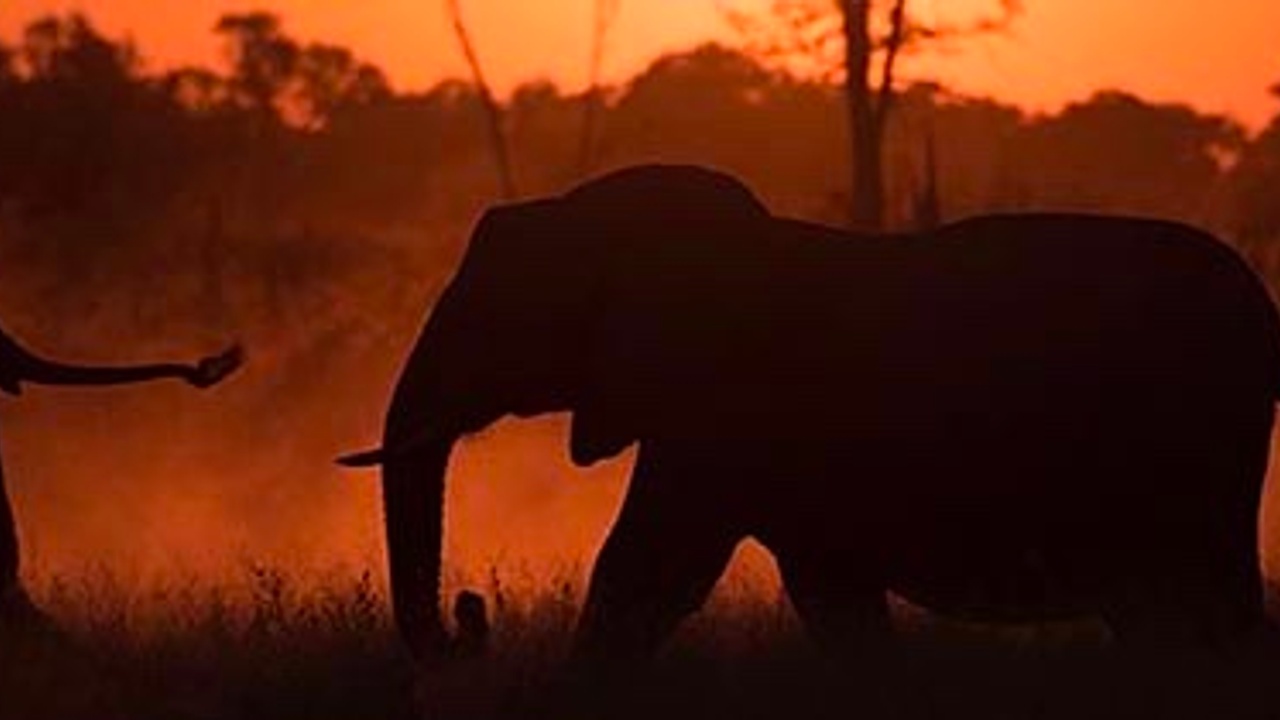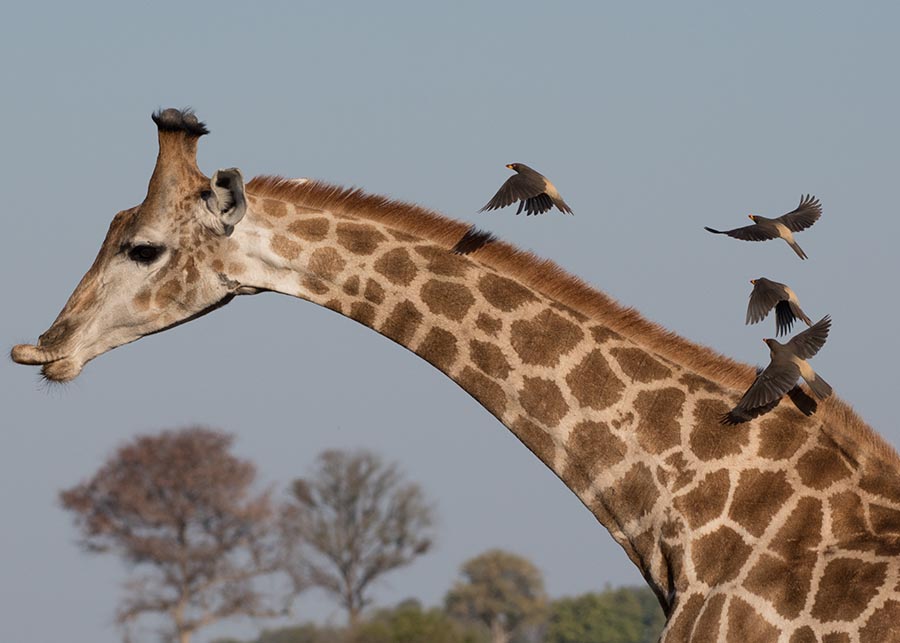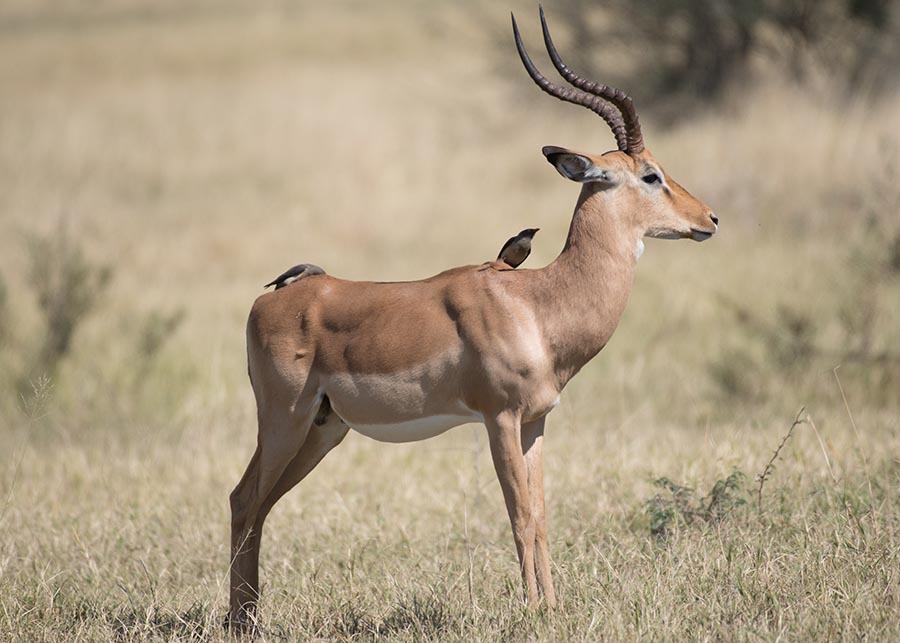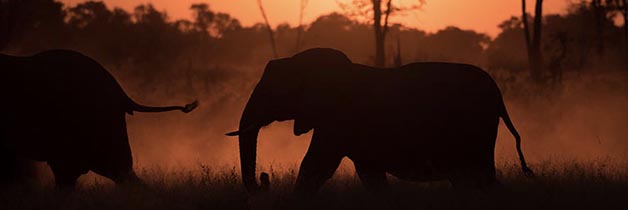Getting By With Help From My Friends
Jul 18, 2018
With a Little Help from My Animal Friends
The Okavango Delta, a UNESCO Heritage Site, is located in Northern Botswana. Each year, water flows from the Angolan highlands and floods parts of the Kalahari Desert. The lush habitat attracts scores of animals including giraffes, elephants, hippos, crocodiles, lions and leopards, among many others. It also is home to many types of birds.
The beauty of the landscape is striking but what is particularly noteworthy is how the animals help protect each other. Groups of mixed animals, such as zebras, wildebeest and impala, often commingle and help alert and protect each other from danger, such as stalking lion and zebras.
Birds, in particular, serve an important role. With their “birds eye view”, they can detect a predator stalking its prey from a distance and, with a unique call, warn the prey of impending risk. Impala, similar to North American deer, are one of the primary beneficiaries and are particularly close to their feathered friends. These relationships have literally saved lives.

With a Little Help from My Human Friends
Our living environments may not look quite as pristine as the Okavango Delta nor are the daily threats to our lives as overtly obvious as stalking lions, but we also rely on our environment and friends to survive and thrive. Research tells us that only about 20% of our longevity is linked to our genes; lifestyle and environment are the primary drivers.
The reality is that we need a robust, face-to-face social network at all stages of life. In fact, Susan Pinker, Author of The Village Effect, argues that having an integrated social life is the best predictor of health and longevity. Indeed, rigorous epidemoiological studies have linked loneliness and social isolation to a host of unhealthy conditions, including heart disease, cancer and depression. This is a pressing issue in today’s culture, in part, because there is an increasing number of single person households; it simply takes more effort to stay in touch with people when you live alone.
The good news is that we can choose to invest in relationships. A recent New York Times article, “The Power of Positive People”, talks about the impact of choosing relationships with positive people. Researchers have found that certain behaviors appear to be contagious or “caught” through our social networks. Our weight, anxiety and overall happiness are examples of where we are influenced by how our friends measure in these areas.
Dan Buettner, founder of Blue Zones, has partnered with federal and state health officials, to make it easier for people to create long-lasting, positive friendships. In his work in studying people that have lived exceptionally long, healthy lives, Dan has found the significance of long lasting relationships. In Okinawa, Japan, where life expectancy of women is the oldest in the world, people form a social network called a moai – a group of a handful of friends who offer social, logistic and emotional support for a lifetime. Dan is working to create an American version of moais in a dozen cities in the US.

Importance of Our Physical Environment
Much like the Okavango Delta on its animals, our physical environment has an important impact on us. It can influence the quality of the air we breath, our likelihood of eating healthy foods and our propensity to exercise, among many factors.
Our physical environment can also help dictate the friends we choose and the frequency at which we socialize with friends. As David Greusel, an architect, points out in his article “Intentional Isolation in Suburbia”, the typical post-World War II home of suburbia has an outdoor social space: a patio, in back, which is “utterly antisocial and utterly normal”. On the other hand, according to writer Abigail Murrish in her article “Porching in Indianapolis”, there is a movement in Indianapolis to take advantage of its plethora of homes with porches to have regular porch parties. At last count, the porch party movement has expanded statewide with fifty-two counties Indiana counties and seven hundred porches participating.
The power of intentional design is key in Smart Living 360 developments. We create common spaces that are designed to foster interaction and unit floor plans conducive to healthy living. We also create a mix of curated and organically driven events that bring people together. People have witnessed the benefits of this approach, including opportunities to create intergenerational relationshipsamong residents.

Unlike Animals, We Have Choice
Animals in the Okavango Delta have adapted to best suit their environment. Our opportunity is different: we are able to largely choose our physical environment as well as our social networks. Let’s hope that each of us chooses wisely and, together, we can keep the inherent perils of life at least arms distance away.
Take the Right Place, Right Time Assessment
Are you in the right place for right now? This quick assessment will reveal opportunities to improve your life.
Subscribe to The Blog
We hate SPAM. We will never sell your information, for any reason.

